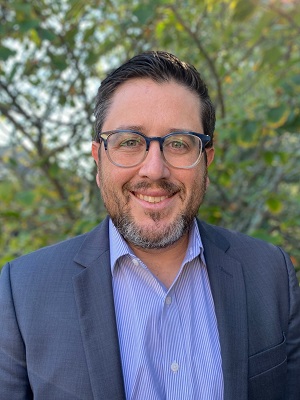Shaun O’Rourke was recently named the managing director for program and business development for the Rhode Island Infrastructure Bank. He previously served as the bank’s director of stormwater and resiliency. He has a bachelor’s degree from the University of Vermont and a master’s degree in landscape architecture from The State University of New York.
PBN: What does your new role with Rhode Island Infrastructure Bank entail?
O’ROURKE: I will be responsible for business and program development at the bank, specifically, leading customer engagement with our municipal and commercial clients, product and program development, and finding solutions to address the infrastructure needs facing municipalities, quasi-public agencies and commercial property owners through our bank’s loan programs.
I will also continue to be deeply involved in the bank’s growing stormwater and climate resilience programs, and the implementation of the Resilient Rhody strategy to better prepare Rhode Island for the impacts of climate change.
PBN: What are your top three goals or priorities related to growing the bank’s programming and business development in 2021?
O’ROURKE: I will be focused on:
- Continuing to provide a solutions-oriented approach to assisting our clients to remove barriers to project implementation, improving economic development through 21st-century infrastructure projects, and supporting the creation of well-paying green economy jobs.
- Providing technical assistance to municipalities and collaboratively building a project pipeline. For example, the bank has recently released two RFPs [request for proposals], which will assist municipalities with stormwater and energy asset management – two areas that we frequently hear our municipal clients want to explore project opportunities.
- Continuing to integrate equity considerations across all of our programs and focusing on how the bank can expand access to funding and financing programs in front-line communities. This work includes promoting economic development through investments in increased public green space, clean water and complete streets for positive climate and health outcomes.
PBN: How has the pandemic impacted the bank’s programs and financing?
O’ROURKE: We have been able to seamlessly move to a remote-work environment thanks to the bank’s technological transformation over the past five years. The pandemic has pushed us to deepen our partnerships with municipalities and city and town finance directors statewide to highlight the historically low current interest rate environment that has made borrowing for projects now very attractive.
Additionally, the bank has found opportunities to create flexibility in our loan disbursement requirements and process to ensure that funds are more quickly distributed to projects.
Finally, even during a pandemic, the bank continues to be open for business with fiscal-2021-year-to-date lending volume at $78 million, with a full year forecast of approximately $150 million. This lending supported almost 2,000 jobs while saving our customers $17 million through lower interest and energy costs.
PBN: What are the biggest challenges, either COVID-19-related or other, when it comes to growing and expanding the bank’s impact to municipal and business borrowers?
O’ROURKE: Municipalities are faced with mounting capital investment but have often not prioritized or created a pipeline of projects due to limited capacity and funding. The bank has recognized this challenge and we have established programs, such as the Municipal Resilience Program, to assist our cities and towns to develop strategies and prioritized projects to increase their resilience to climate change and severe weather events. To date, we have worked with 13 municipalities to identify over 200 projects with an estimated cost of $130 million.
PBN: How does the bank’s programming related to climate resiliency and clean energy tie in with the state’s ambitious renewable energy goals?
O’ROURKE: The bank’s strategic priorities align with those of the state and support the increase in renewable energy usage and a climate resilient future. We are focused on being an implementation partner to ensure we build and maintain infrastructure that can withstand a changing climate, contributes to healthy communities and creates new green economy jobs. A more resilient Rhode Island will also be a big positive for the state’s future economic growth.
Nancy Lavin is a PBN staff writer. You may reach her at Lavin@PBN.com.













